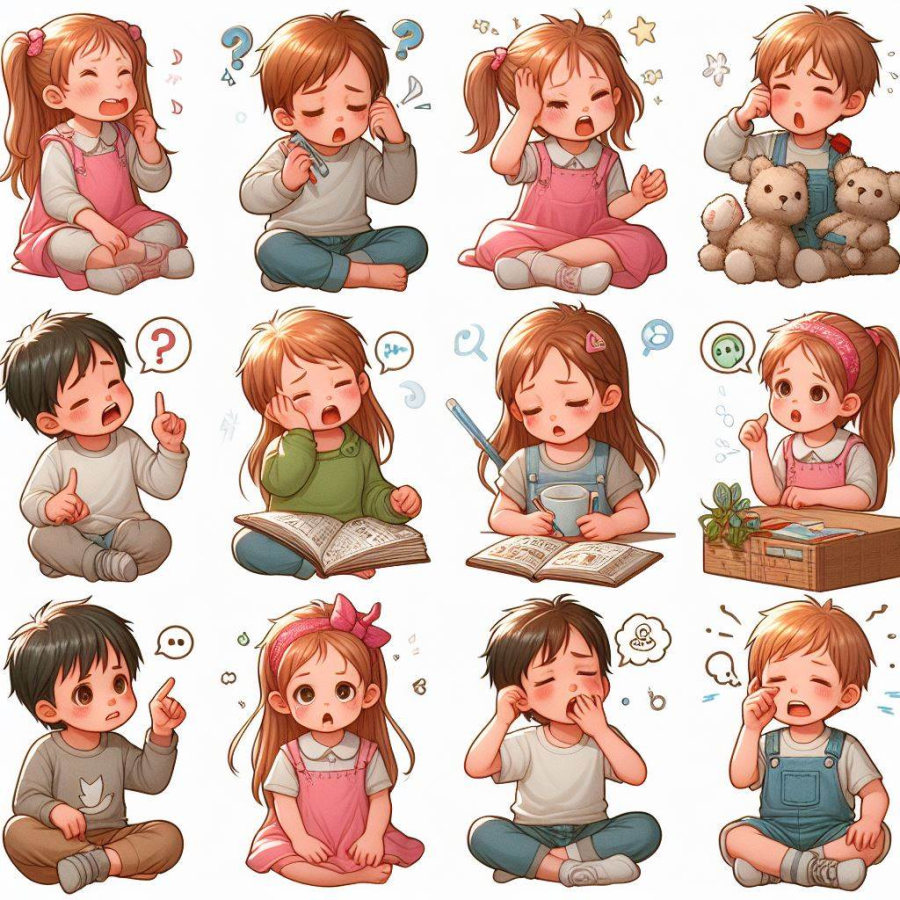A parent shared that while her daughter was a diligent 5th grader and was sharp in her daily life, there was one thing that always left her and her husband concerned. That was during her time in school, whenever she faced a difficult question or content that she could not figure out herself, she never had enough courage to ask her teacher.
Due to her hesitation in asking questions, the little girl’s academic performance did not see any significant progress for a while. This is not an uncommon issue found in many students. Even so, children are usually very curious and enthusiastic about asking questions. In every child’s mind is a treasure trove of questions, and it is these very questions that contribute significantly to their exploration and understanding of the world around them, thereby developing themselves each day.
However, the reality is that quite a number of children find it difficult to actively ask questions or express their concerns while in school. Why does this happen? There are 3 main reasons that parents should be aware of so they can support their children in a своевременный manner.
Children lack confidence
“Why does the sky appear blue? What makes grass green? Why does snow fall in winter? And why does snow melt when exposed to the heat from fire?”
Some parents might consider the above questions as unimportant, or they might not know the right answers themselves. Therefore, when their children ask these questions, some parents might show no interest, try to avoid, or even react negatively to their children’s curiosity.
According to psychological experts, children’s perception of the world around them is shaped by the way their parents interact with them. If they are mocked or criticized by their parents since they were little, they might develop a fearful mindset as they grow up.
Children might develop feelings of inferiority, inadequacy, or a distorted perception of their own abilities. Over time, they might become hesitant in asking questions, afraid to show their curiosity in front of their parents, adults, or teachers.

Children might develop feelings of inferiority, inadequacy, or a distorted perception of their own abilities.
Lack of communication skills
The truth is that most children tend to be very talkative. However, because they have yet to fully develop their expressive skills, lack social understanding, communication skills, and other factors, they often have difficulty making others understand them when communicating.
Since children’s language thinking is still limited, the questions they ask their parents, teachers, and friends are often difficult to understand. This leads to children feeling troubled, losing their enthusiasm, and even feeling ashamed when they are not understood by others.
Additionally, when children’s questions are not fully understood, the answers they receive are often not enough to satisfy their curiosity. Gradually, this can lead to children feeling apprehensive or losing interest in asking questions to those around them, even when they are facing complex issues with knowledge that they cannot solve on their own.

Lack of communication skills makes it difficult for children to ask questions.
Impact of the surrounding environment
Studies in the field of neuroscience have shown that when we are stressed, the body releases neurotransmitters such as norepinephrine and dopamine, which disrupt some pathways in the process of information transmission between nerve cells in the frontal lobe of the brain. This reduces the ability to manage behavior and cognitive function in this area. In simple terms, stress affects our ability to think.
In recent times, although the national education policy has been adjusted to reduce academic pressure for students, many parents still maintain high expectations and continue to put a lot of pressure on their children because they are too used to pursuing high achievements.
In a highly competitive educational environment, children often face feelings of insecurity and helplessness due to excessive academic pressure. This inhibits brain development and reduces curiosity and the desire to learn. As a result, children become more and more passive, no longer wanting to ask questions or discuss personal issues with their teachers.
According to the renowned scientist Einstein, the ability to ask questions regularly is more important than solving them. This is because problem-solving may only require skills, but proposing new questions, exploring new possibilities, and looking at problems from a new perspective all require creativity, imagination, and are manifestations of true progress in thinking.
He also emphasized that imagination is more valuable than knowledge because knowledge is limited, while imagination is boundless. That is why encouraging children to ask questions can boost their imagination and creativity.
Many educational experts believe that if a child is not confident in asking questions when they are puzzled, this may reflect shortcomings in the teaching methods of their parents or other factors. Parents need to reflect on themselves, find solutions, and encourage their children so that they can be confident and brave in asking questions. Only through this approach can children’s learning process and academic performance improve, and they will have a deeper understanding of what they have learned.






































